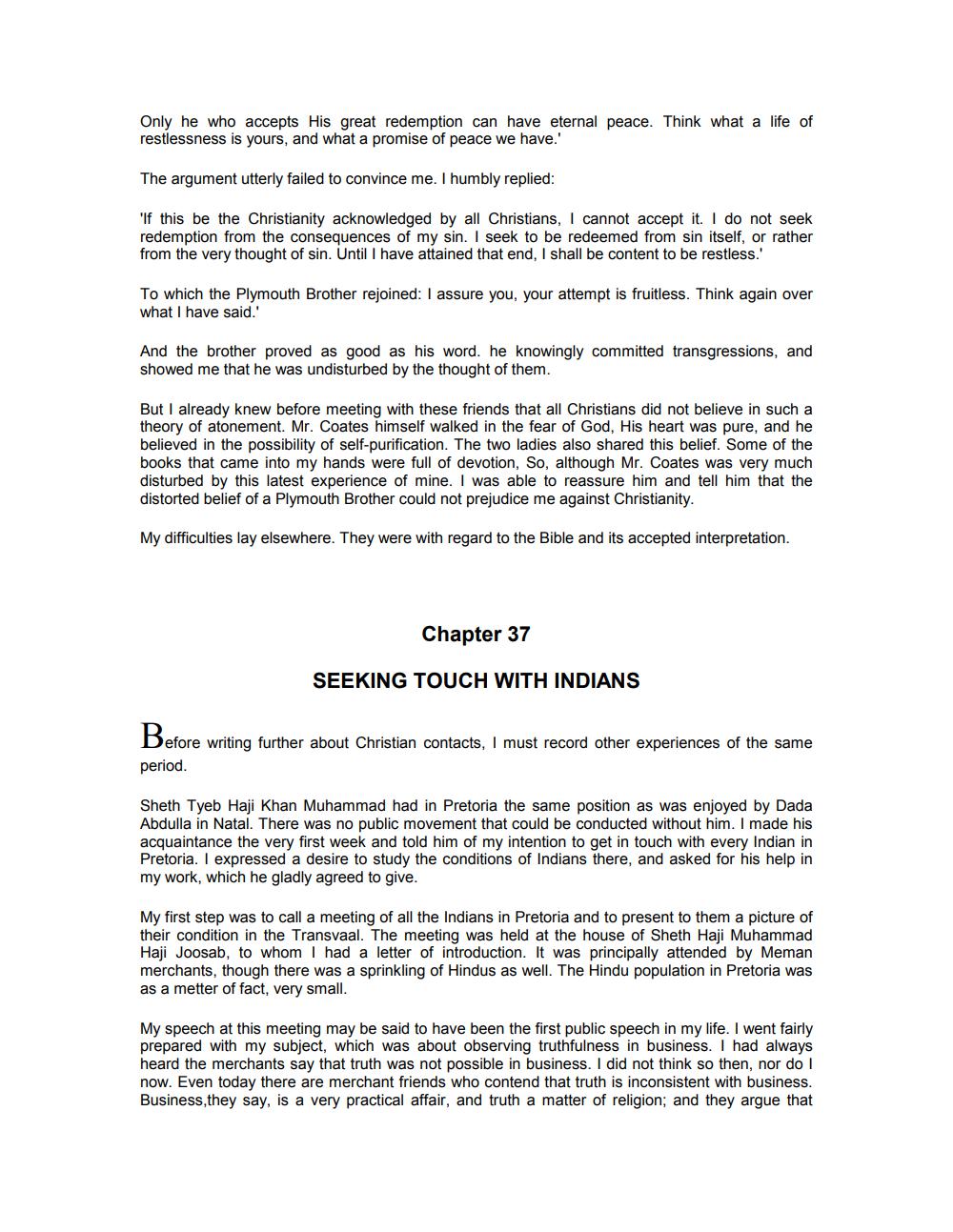________________
Only he who accepts His great redemption can have eternal peace. Think what a life of restlessness is yours, and what a promise of peace we have.'
The argument utterly failed to convince me. I humbly replied:
'If this be the Christianity acknowledged by all Christians, I cannot accept it. I do not seek redemption from the consequences of my sin. I seek to be redeemed from sin itself, or rather from the very thought of sin. Until I have attained that end, I shall be content to be restless.
To which the Plymouth Brother rejoined: I assure you, your attempt is fruitless. Think again over what I have said.
And the brother proved as good as his word. he knowingly committed transgressions, and showed me that he was undisturbed by the thought of them.
But I already knew before meeting with these friends that all Christians did not believe in such a theory of atonement. Mr. Coates himself walked in the fear of God, His heart was pure, and he believed in the possibility of self-purification. The two ladies also shared this belief. Some of the books that came into my hands were full of devotion, So, although Mr. Coates was very much disturbed by this latest experience of mine. I was able to reassure him and tell him that the distorted belief of a Plymouth Brother could not prejudice me against Christianity.
My difficulties lay elsewhere. They were with regard to the Bible and its accepted interpretation.
Chapter 37
SEEKING TOUCH WITH INDIANS
Before writing further about Christian contacts, I must record other experiences of the same period.
Sheth Tyeb Haji Khan Muhammad had in Pretoria the same position as was enjoyed by Dada Abdulla in Natal. There was no public movement that could be conducted without him. I made his acquaintance the very first week and told him of my intention to get in touch with every Indian in Pretoria. I expressed a desire to study the conditions of Indians there, and asked for his help in my work, which he gladly agreed to give.
My first step was to call a meeting of all the Indians in Pretoria and to present to them a picture of their condition in the Transvaal. The meeting was held at the house of Sheth Haji Muhammad Haji Joosab, to whom I had a letter of introduction. It was principally attended by Meman merchants, though there was a sprinkling of Hindus as well. The Hindu population in Pretoria was as a metter of fact, very small.
My speech at this meeting may be said to have been the first public speech in my life. I went fairly prepared with my subject, which was about observing truthfulness in business. I had always heard the merchants say that truth was not possible in business. I did not think so then, nor do I now. Even today there are merchant friends who contend that truth is inconsistent with business. Business, they say, is a very practical affair, and truth a matter of religion; and they argue that




